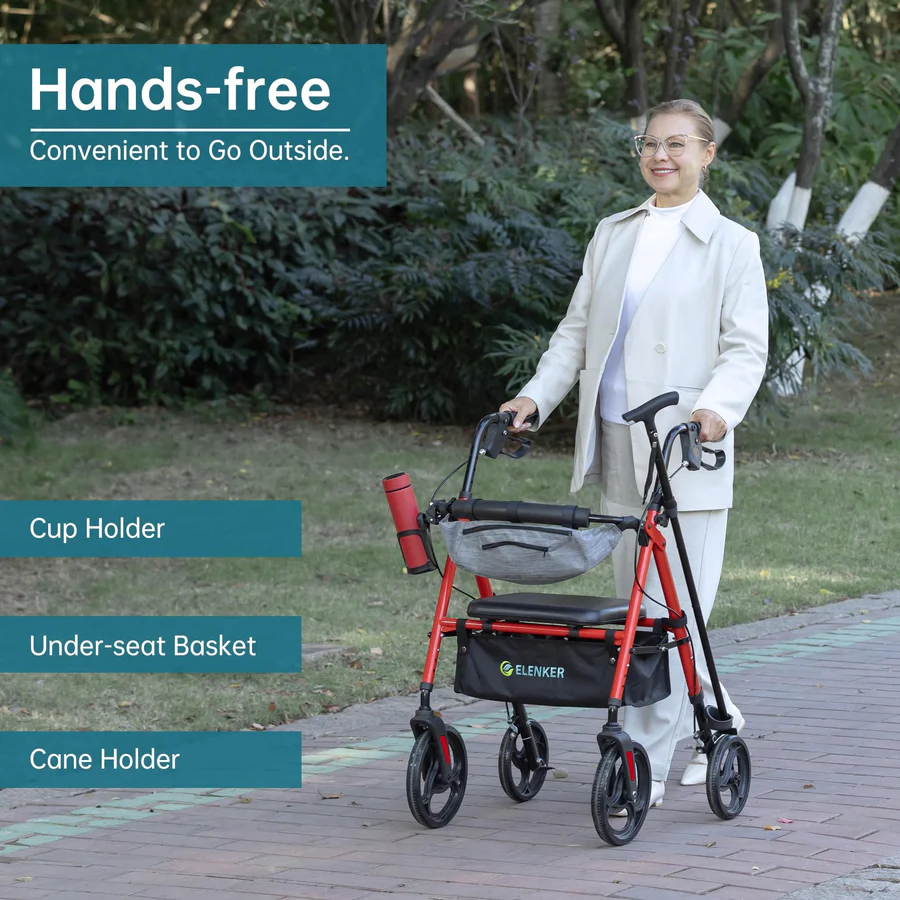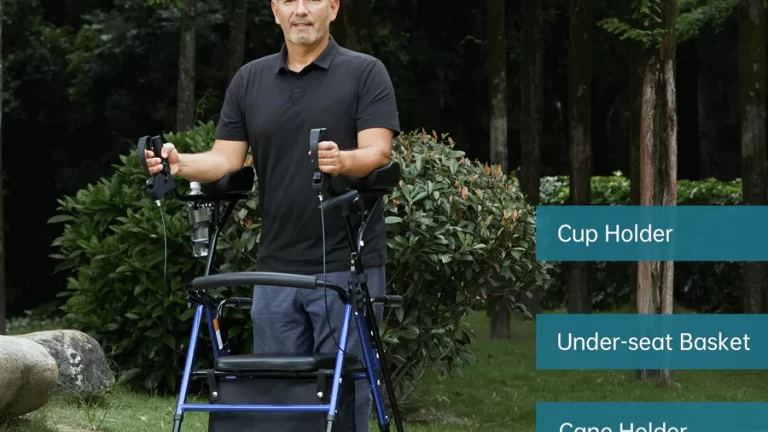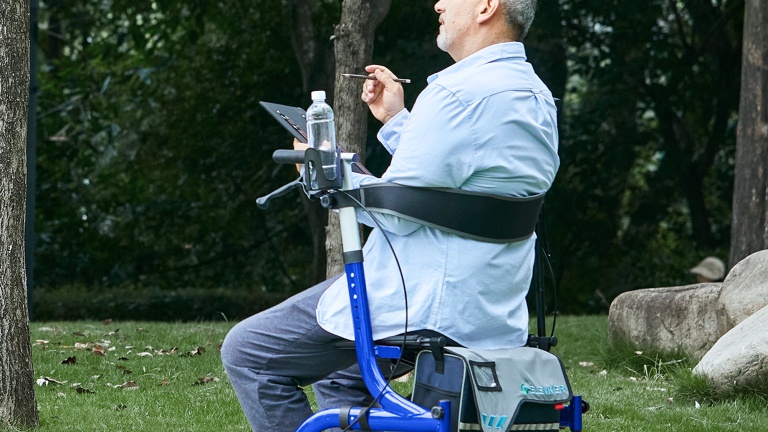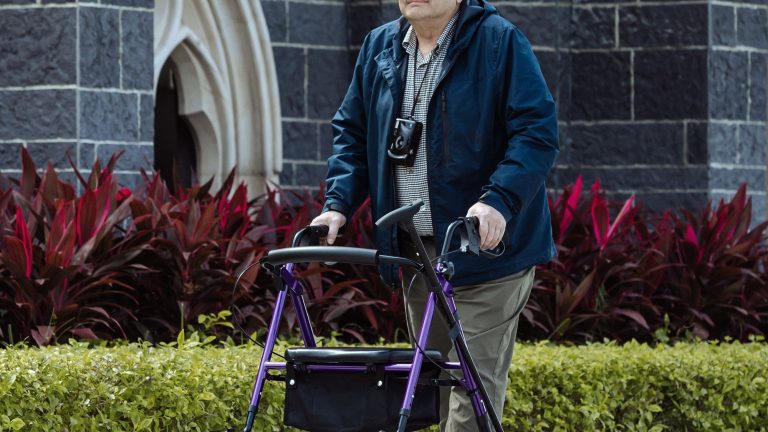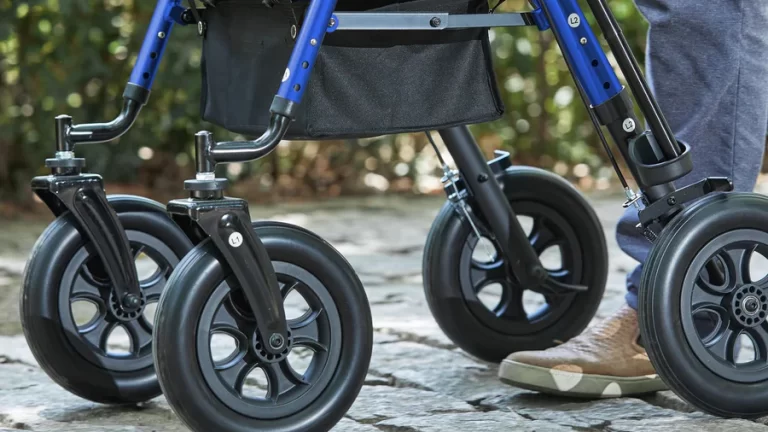When it comes to getting around safely and confidently, walkers with wheels have become a go-to option for many seniors. They offer support, mobility, and a bit of freedom. But a lot of people still wonder—are they actually safe?
What Makes a Walker “Safe”?
Safety is all about how the walker matches the person using it. The right walker should help someone move around with ease, not add more stress or cause tripping hazards.
A walker with wheels can be super helpful when:
- A senior is stable on their feet but just needs a little support
- They’re walking longer distances and want to avoid lifting a heavy walker
- They tire out easily and appreciate the option to sit and rest
- They want to stay active indoors and outdoors
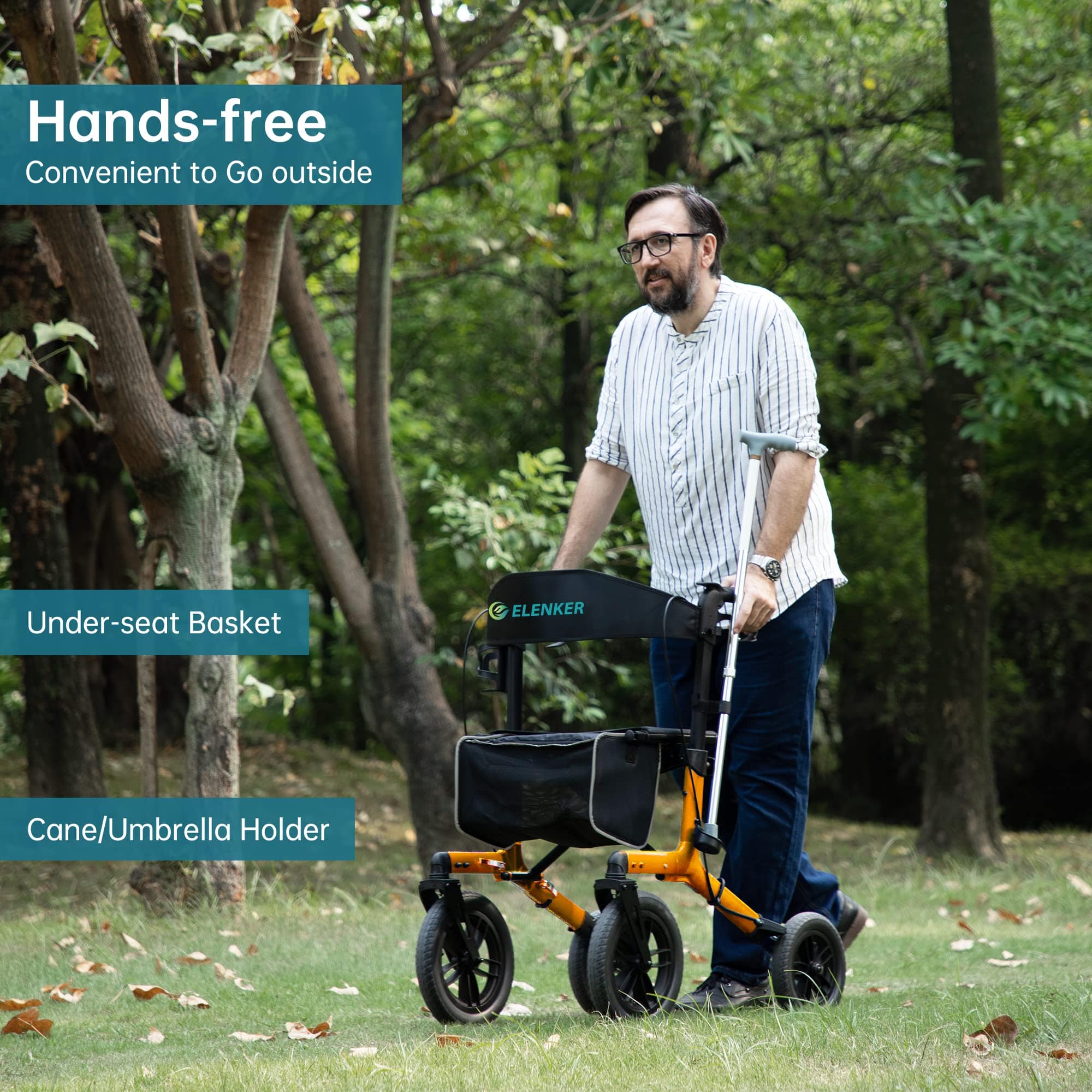
The wheels do a lot of the work, especially for folks who find it hard to lift and move a traditional walker.
2 Wheels, 3 Wheels, or 4?
Not all wheeled walkers are the same, and picking the right type matters for safety.
🚶♂️ Two-Wheel Walkers
These have two wheels in the front and rubber tips in the back. They offer support and a bit of glide without rolling away too quickly. Great for folks who need stability above all else.

🚴 Three-Wheel Walkers
Lightweight and easy to maneuver, these are perfect for people who don’t need a seat and are still fairly mobile. They’re nimble but a bit less stable than four-wheel options.
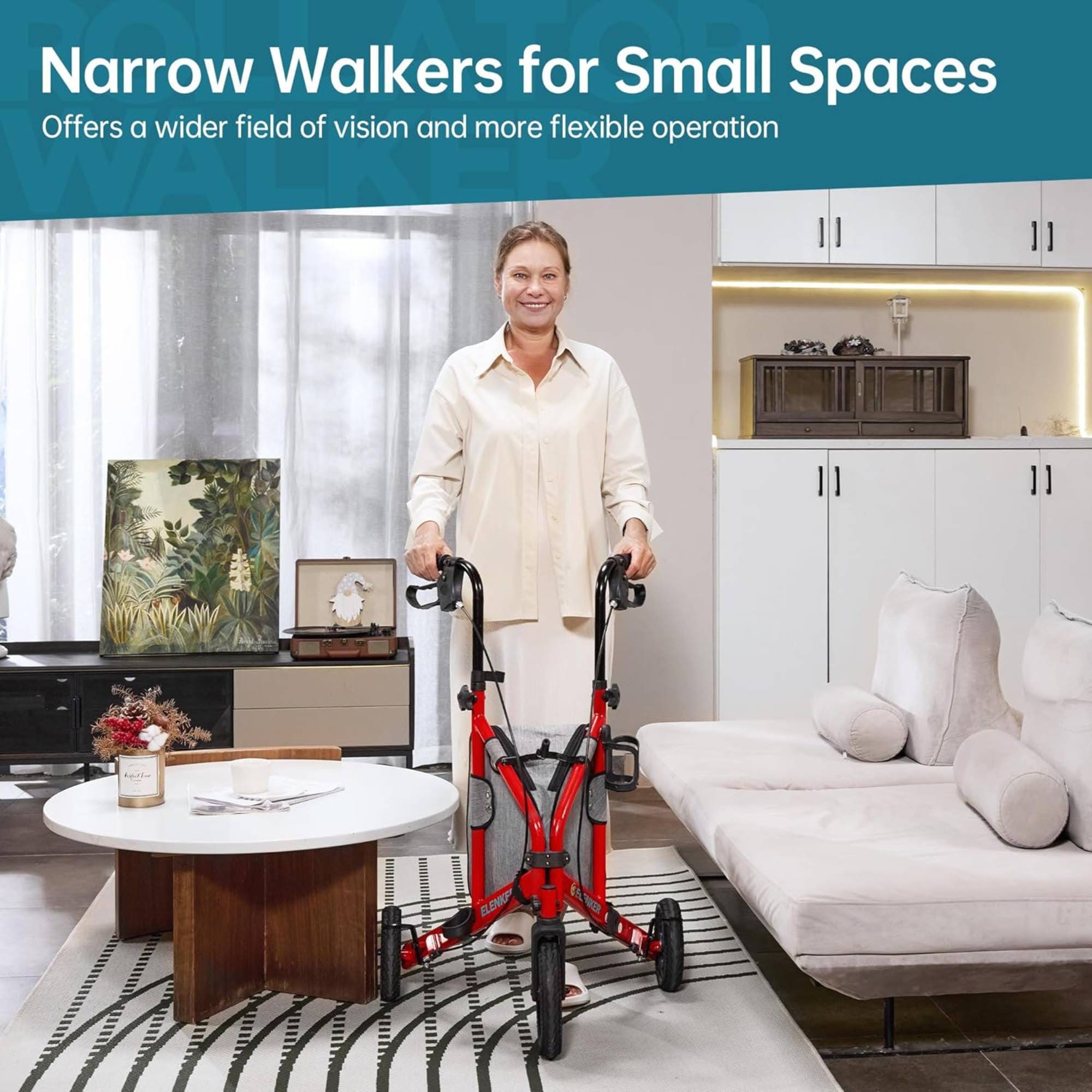
🚶♀️ Four-Wheel Walkers (aka Rollators)
These come with brakes, a seat, and often a storage pouch or basket. Super popular for seniors who like to walk a lot, run errands, or rest as needed. But they do roll freely, so brakes and control matter.
Do Wheels Make Walkers Risky?
This is the part that worries some folks—and it’s a fair concern. Wheels make walkers easier to push, but they also introduce movement. That means balance and braking become more important.
Here’s what helps:
- Hand Brakes: Every 3- or 4-wheel walker should have them. Squeeze to slow down, lock to stop when sitting.
- Right Size Walker: The handles should hit at wrist level when standing upright.
- Training: A little time learning how to use the brakes, turn properly, and sit down safely goes a long way.
- Slow and Steady: Seniors should walk at their own pace, not feel rushed to keep up with the wheels.
Wheels aren’t dangerous on their own. It’s all about how they’re used.
Key Safety Features to Look For
Want to make sure your (or your loved one’s) walker is safe? Keep an eye out for these:
Height-adjustable handles
So the user isn’t hunched over or overstretching.
Comfortable hand grips
Helps with arthritis or limited hand strength.
Locking brakes
Crucial for sitting down safely.
Wide, stable frame
Keeps things from tipping over.
Durable wheels
The bigger and smoother, the better for outdoor use.
Padded seat with backrest
A must for taking breaks without struggling to get up again.
Tips for Safer Use
Having a good walker is only half the battle. Knowing how to use it safely is just as important.
Use it on even surfaces
Rugs, uneven sidewalks, and stairs can be tricky. Stick to flat areas when possible.
Keep it clutter-free
No bags hanging off the handles and no overstuffing baskets that can make the walker tip.
Practice sitting down
Always lock the brakes first and back up slowly to the seat. Never plop down too fast.
Don’t lean too far forward
Walking upright helps with balance and control.
When a Walker with Wheels Might Not Be Safe
There are cases where a wheeled walker might not be the right choice:
- If someone has severe balance issues and can’t control a rolling walker
- If they forget to use the brakes
- If they have cognitive issues and can’t follow basic safety instructions
- If they’re dealing with weakness in their arms or grip
In those situations, a physical therapist or doctor might recommend a different mobility aid—or extra training to use one safely.
So… Are Walkers with Wheels Safe?
Yes—when they’re the right type, fit well, and are used properly.
Walkers with wheels can give seniors a serious boost in confidence. They make errands, walks in the park, and even just moving from room to room less tiring. Plus, having a seat ready to go anywhere? That’s a win.
But like anything else, safety depends on the person using it. With the right setup, a little guidance, and regular check-ins, a wheeled walker can be a safe and reliable support tool for years to come.
